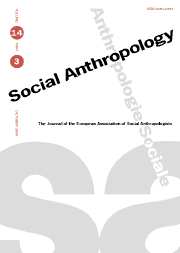No CrossRef data available.
Article contents
Writing ethnography. Malinowski's fieldnotes on Baloma
Published online by Cambridge University Press: 17 January 2003
Abstract
This paper examines how Malinowski used his fieldnotes to write ‘Baloma’. Twelve of Malinowski's field notebooks, written during his first stay in the Trobriand islands are reviewed. It explores the relationship between Malinowski's fieldnotes and the structure and contents of the ethnographic text. Other issues discussed in this paper include: the use of data for making the text, the self description of the ethnographer's research path, and the influence of theoretical inputs in the way of reporting. It is argued that Malinowski increased the validity of his ethnography by including in the text the following three elements: fieldwork data, information about the research process, and theoretical assumptions. Thus, he inaugurated a new way of writing up ethnography. With ‘Baloma’, ethnography took the form of a continuous constructive process, involving the tasks of doing fieldwork and writing – two related phases of the ethnographic process. Thanks to his experience in the Trobriands, Malinowski came to revolutionise ethnography, not only as a fieldwork process, but also as a written product.
- Type
- Research Article
- Information
- Copyright
- © 2002 European Association of Social Anthropologists




